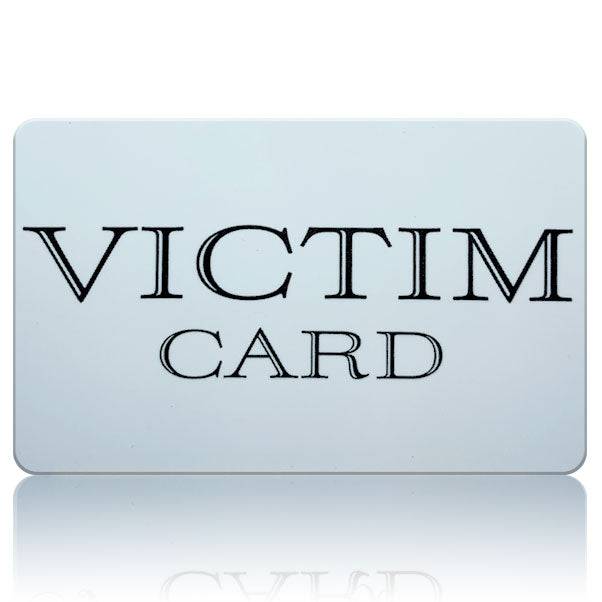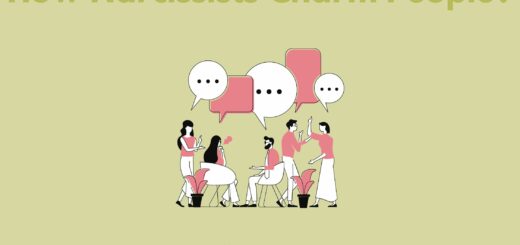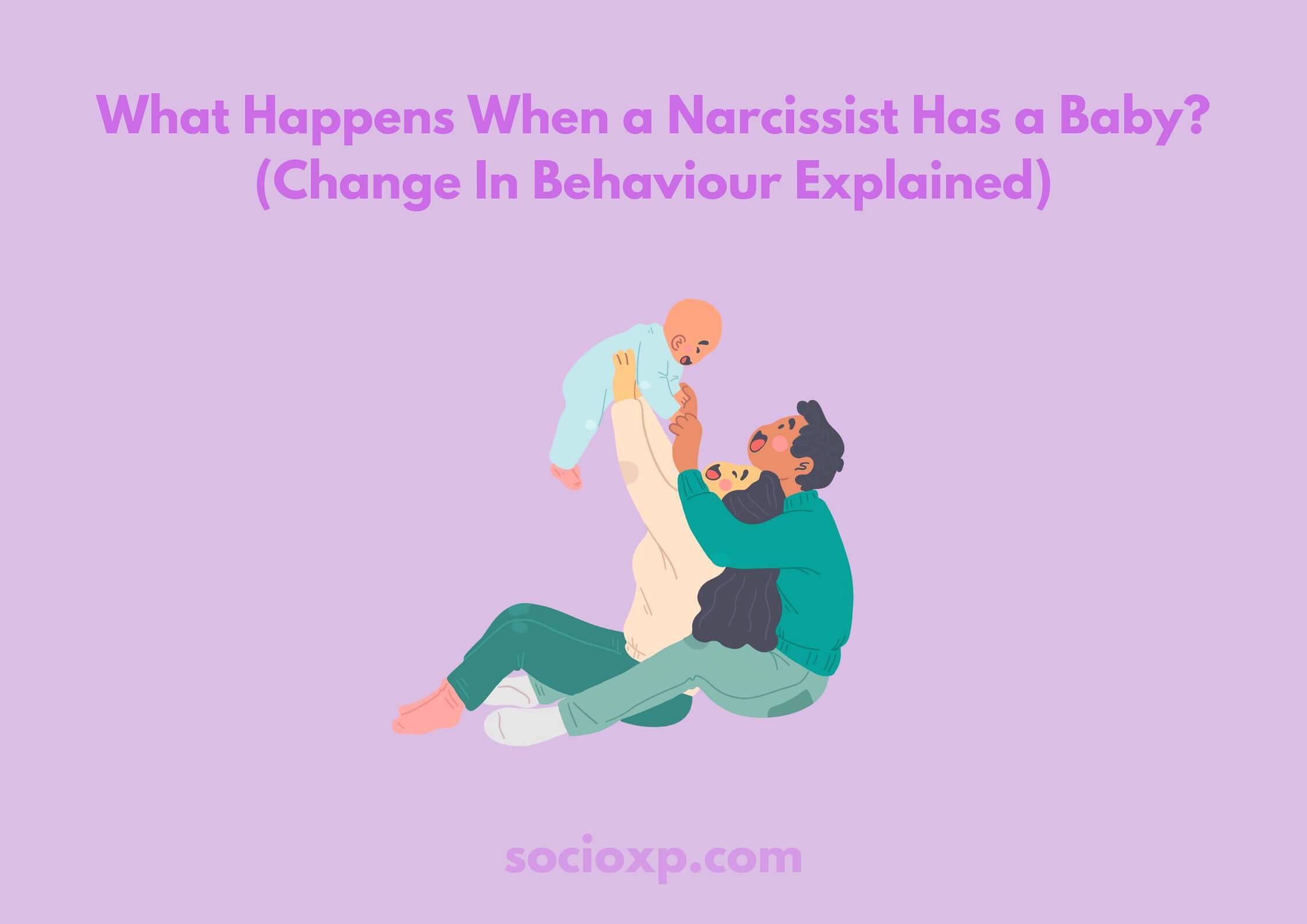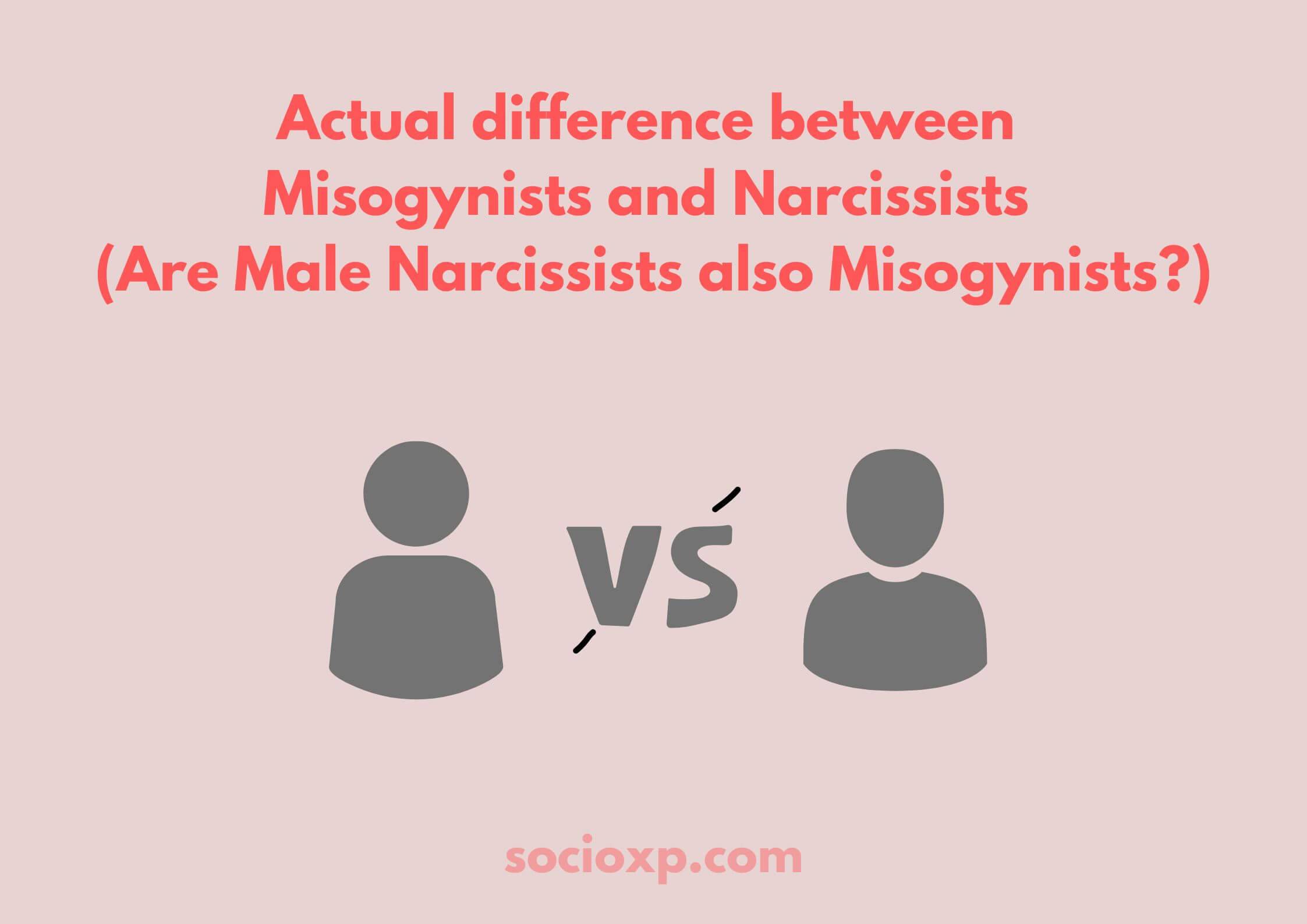Why Do Narcissists Always Play the Victim Card? (& How to Protect Yourself from it?)
Why Do Narcissists Always Play the Victim Card? When narcissists are accused of something or are confronted, then they would be so perplexed about the whole situation that they would jump onto immediate solutions which include distorting and denying the whole truth and reality of the situation. They would try to reverse the situation and play the victim.
So what is playing the victim card? Why would narcissists play the victim card and how to protect yourself from such manipulative situations? Let us get to know the answers to these questions further in the article. Before diving directly in, let us take a pause and get familiar with a narcissist and their characteristics first.

What is a Narcissist?
Narcissists are often characterized by their boosted sense of self-importance, self-pride, and self-needs. With a narcissist, everything is just about them. Narcissists thrive upon the attention, adoration, and validation that they receive from others, and what makes them distinguished from others is the way they think and the way they behave, which is totally selfish and mean.
A narcissist is an incorrigible person who is not able to acknowledge their own mistakes and considers themselves spotless and perfect. They try to be perfectionists and idealists and claim veneration. They adore only themselves and think that no one can love them more than themselves so they do not consider or even try to appreciate your feelings. They do not reciprocate your love and care. They run after materialistic pleasures rather than enjoying the company of their partner fully.
Signs of Narcissistic Personality Disorder
These traits may vary for some individuals, thus here mentioned signs can be generalized for majorly all narcissists in all.
Manipulation – Manipulation is a narcissist’s go-to tactic while dealing with others in order to get what they need.
Grandiosity – Narcissists have a boosted sense of self-importance and thus showing off their achievements, talents, plus points, looks and much more becomes their regular ritual.
Lack of Accountability – Narcissists may never take responsibility for their actions even though their actions may cause distress and harm to others. They use the technique called blameshifting to distract everyone and thus ditch their wrongdoings.
Entitlement – Narcissists believe that they are made for special treatment and deserve all the privileges as they are better than others.
Envy – Narcissists easily get jealous of other people, their looks, their achievements, and much more.
Exploitative tendencies – Narcissists can exploit others without giving it a second thought and without even trying to know the consequences of their actions.
Arrogance – Narcissists are filled with arrogance and their attitude towards others says it all.
Lack of Empathy – Narcissists lack empathy thus they are unable to understand other people’s emotions. they lack a perspective that can help them to understand someone else’s situation. They cannot put themselves in other people’s shoes. For them only self-importance and self sympathy matters.
An obsessive need for admiration – Narcissists constantly need reassurance from other people. They would always direct conversations toward seeking attention in the form of compliments, praise, and glorification of their worth.
Identity Issues – Many narcissists are unable to identify their toxic personalities due to little to no ego strength. Thus they are unable to reflect on their own self.

What does Playing the Victim mean?
Playing the victim is a situation when an individual acts innocent even though they are the ones at fault just to gain sympathy, aid, and attention from other people. It is a manipulative tactic usually applied by abusers, especially narcissists to pin on others for what they have been doing. They portray themselves as this innocent being, who is totally unaware of their wrongdoings and wishes to seek justice, sympathy, and help from others.
It is a tactic, where the wrongdoer tries to escape from their wrongdoings, and instead blames the victim as the culprit. This technique of playing the victim often involves victimizing one’s own self to get away from accepting the responsibilities and blame and highlighting one’s own sufferings and pain after creating havoc. It is a way for the culprit to distract attention from their faulty personality to their fake innocent and pitiful projected self.
The Victim Mentality of a Narcissist
Narcissists can or may use the Victim card or have the victim mentality if they believe that they can gain something out of the guilt-tripping. Narcissists are manipulators and they tend to manipulate people around them to gain benefit.
According to a study published by psychology experts, narcissistic people may see themselves as the victim of rational indiscretion more than people who do suffer from a narcissistic personality disorder.
It is not clear though whether narcissists really feel victimized or they are just laying or pretending to be a victim to Twitch social interplays. It is nearly not possible to judge the victim mentality of the narcissist, and also difficult to identify whether they are playing the victim card for their own benefit or they are indeed suffering.
But conceding their toxic and manipulative personalities and characteristics, they lack self-reflection and self-awareness. Generally, people with narcissistic personality disorder or narcissistic tendencies find it difficult to make themselves aware of their nasty and delusional behavior. They even fail to notice how their behavior may affect other people around them or how it may put someone else in a tight spot. They may not recognize their own mistakes or manipulative behavior when you point it out to them, as narcissists think highly of themselves.
This can be the prime reason why they may feel attacked when someone points fingers at them. They just cannot accept the fact that they might have done something wrong due to their inflated sense of self-importance.
The tendency of self-obsession and self-absorption along with a boosted sense of self-superiority may leave a narcissist to observe the situation of absorbing the blame as something improper or targeting, thus they may decide to play the victim card.

Why Do Narcissists Always Play the Victim Card?
There are a few reasons why a narcissist might always choose to play the victim card, which are mentioned here below,
Defense Mechanism
Everybody has a certain defense mechanism when it comes to any circumstance that includes criticism or being accountable for something. An individual might or might not be aware when their defense mechanism may automatically get activated, serving its purpose.
The basic purpose of a defense mechanism is that it helps some people to protect their identities by perceived threats or it might shield our emotional health by letting go of past painful memories, or it may help some people to fight against criticism.
People with a personality disorder mostly use their defense mechanism of playing the victim, when they feel their grandiose self is being treated, or someone might disclose their real toxic self, or when they think they are being criticized for something. Then their common defense mechanism or playing the victim in such cases, automatically switches into an active mode allowing them to avoid the problem altogether and blaming shifting to someone innocent.
It is not yet known for sure whether narcissistic individuals do this on purpose, or is it just there a natural way or a defense system that allows them to face the problem. Thus it cannot be said with surety whether a narcissist plays the victim card on purpose or it is just their natural defense mechanism.
Need for control
Usually, people with narcissistic personality disorder have an obsession with controlling others around them. Thus while doing so, playing the victim card might help them to gain the control of situation.
Generally, when there is criticism or disagreement, you might either try to solve it, be accountable for the wrongdoings, or present a proper counterargument proving your innocence or the injustice of the other person. But with narcissists, the scene is completely different. They would be the ones responsible for all wrongdoing, yet they may try to either blame shift or play the victim card in such tense situations.
So when a narcissist uses the tactic of playing the victim, it can also be majorly for gaining control of the situation.
Rage
Narcissistic rage is a counter-reaction or a defense mechanism utilized by a narcissist to guard themselves and their grandiose image. They even use rage to establish their superiority, power, and self-worth, and thus safeguard their perfect spotless image. Narcissistic rage is like a shield that protects the narcissist from the arrows or spears of setbacks, shame, inefficiency, disappointment, vulnerabilities, and anything that can devalue their worth.
Each person has different triggers when it comes to handling the blame or taking criticism. Narcissists believe that if someone is doing something that they do not like, playing the victim card may help to entirely drop the matter or constraints the other person to other change their ways of dealing with the matter rather than blaming.
Thus playing the victim card may also be one of the ways to express their rage, or deal with unwanted situations for that matter for some narcissistic individuals.
Low Empathy
Narcissists are individuals with a lot of internal conflicts, and imbalance and lack that emotional bonding that is required to live effortlessly and happily. A lack of empathy or a low empathy has been proposed as a prime reason for the narcissist’s hurtful, nasty, cold-hearted, insensitive, and negative behavior towards other people.
Many pieces of research conclude that people with a narcissistic personality disorder may not experience guilt as you do. This may provoke them to use manipulation while dealing with others for what they need. Low empathy makes them believe that by even commenting or explaining something incorrect that they might have done as an attack and thus they may choose to entirely shut themselves and play the victim card instead of listening or taking accountability.
Thus people with narcissistic personality disorder may play the victim card when they sense the slightest of the threat if it is even a small comment or a small argument or a misunderstanding.
Sense of Entitlement
A person with a narcissistic personality disorder may believe that they are entitled to special treatment, perks, and privileges. Thus when things start going the other way, they might react either with anguish or might just blame others for making the situation harder for them.
When narcissistic people do not receive expected praise or recognition for their little efforts they might pass statements like, “It is hard to believe you behaving this way, after what I have done for you; such a selfish way.” Thus they may choose to play the victim card when they do not receive the praise, attention, and validation that they think they deserve.
How to Protect Yourself when the narcissist plays the victim card?
Dealing with a narcissist may seem overwhelming in some situations and especially when they play the victim card after causing that much damage. In such situations, you must remain calm and try to relax as much as possible. Counterarguments or self-blame may lead to a much more toxic situation than it already is, so without internalizing, without idealizing, and without trying to change the situation entirely, here are a few ways that may help to protect yourself when the narcissist is playing the victim card.
Keep your self-worth in mind
A narcissist directly targets you to degrade you and make you feel low and bad. They always try to victimize the innocent by blameshifting and creating a make-believe situation where even you can be tricked by their manipulative tactics. Even though you are not at fault, they make you believe so and you might also start doubting your sanity here. But just remember here, you are much more worthy than their false accusations and do not let the narcissist brainwash you otherwise.

Do not argue or try to negotiate
Narcissists wish to have a heated fight as they accuse you of what they are doing. They are wishing to have a conflict here, and they would always like to blame you for every action and chaos that they have created. They would make a mess and pin it on you. So here what you can do is not get involved in the fight as they would cause more problems on your rebuttal.
If there is a minutest chance that causes a scene then a narcissist would definitely grab it and cause a ruckus by throwing a debate or a fight. So not arguing or throwing a rebuttal is the best way to save yourself from further getting accused of something that you have not done.
Do not internalize the situation
When a narcissist may hurt you by blame-shifting or playing the victim, try not to get much affected. Try to remain calm and unaffected. It is better when done than said, but one must endure a little. Such situations seem tough, but there is always a way out when you remain calm and do not take anything personally.
Setting Boundaries
Setting boundaries can help you maintain your emotional well-being in the first place. It is not possible entirely to stop the narcissist from blaming you and that too fake accusations, but it is absolutely possible to remind them of the boundaries now and then. Setting boundaries means clearly discussing about what behavior is acceptable and what is not. Stick to your boundaries and do not let them manipulate you.
Synopsis
It is not clear though whether narcissists really feel victimized or they are just laying or pretending to be a victim to Twitch social interplays. It is nearly not possible to judge the victim mentality of the narcissist, and also difficult to identify whether they are playing the victim card for their own benefit or they are indeed suffering.
Dealing with a narcissist may seem overwhelming in some situations and especially when they play the victim card after causing that much damage. In such situations, you must remain calm and try to relax as much as possible. Counterarguments or self-blame may lead to a much more toxic situation than it already is, so without internalizing, without idealizing, and without trying to change the situation entirely. Understand this situation when it repeats as a red flag and either set boundaries or just stay away from such a toxic relationship.
- How To Make A Narcissist Discard You And Leave You Alone? - March 21, 2024
- Narcissistic Supply: 9 Signs You May Be Someone’s Narcissistic Supply - March 11, 2024
- Narcissistic Abuse And Anxiety – 11 Symptoms of Narcissistic abuse-induced anxiety - March 9, 2024


